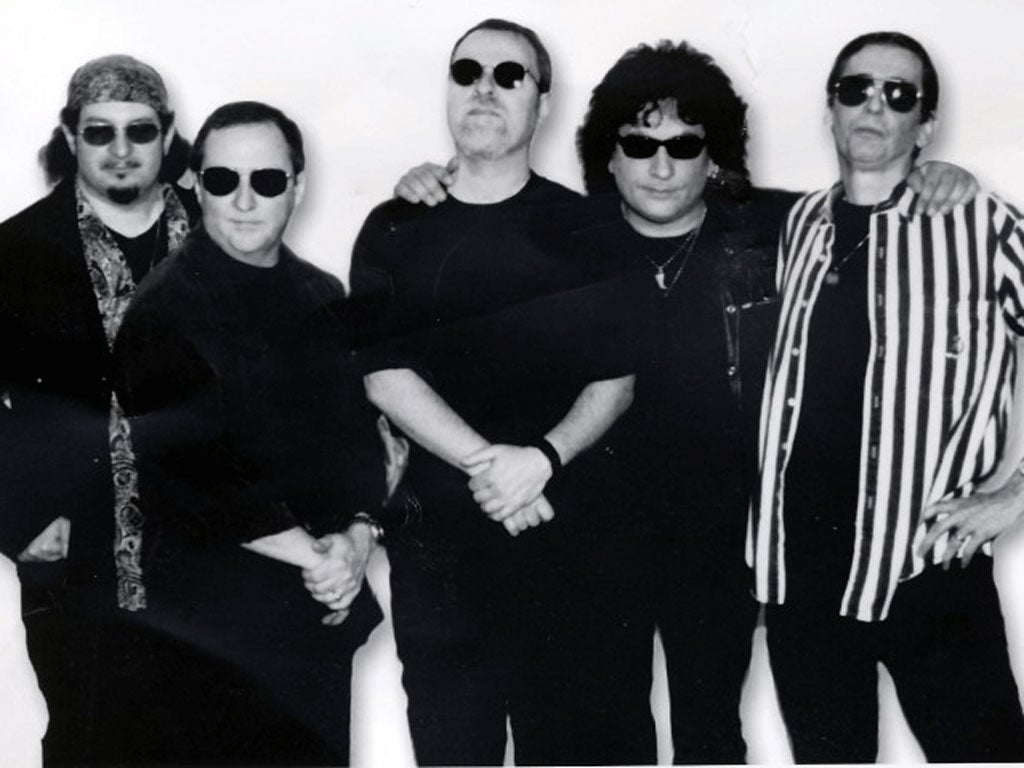Allen Lanier: Founder-member of Blue Öyster Cult

The keyboard-player, guitarist and songwriter Allen Lanier was a founder-member of Blue Öyster Cult, the thinking man's heavy metal band best known for the spectral anthem "(Don't Fear) The Reaper''. Included in the John Carpenter horror film Halloween in 1978, two years after its original release on the group's fourth studio album Agents Of Fortune, and referenced in The Simpsons, "Reaper'' tends to overshadow the rest of BÖC's mercurial oeuvre.
It was the band's éminence grise and manager, Sandy Pearlman, who named the band after the Blue Point oysters on a local restaurant menu in 1971, but Lanier who suggested the addition of the all-important umlaut, a practice that became commonplace in rock with the likes of Motörhead and Mötley Crüe. A mainstay of BÖC until 2006, save for a two-year hiatus in the mid-'80s, Lanier contributed to all but one of the 11 studio albums and three live sets that did much to establish their reputation as one of the definitive rock acts of the 1970s.
For eight years he was the partner of Patti Smith, and co-wrote two tracks on her epochal 1975 debut Horses, the haunting "Elegie'' and "Kimberly''. He guested on her next two releases, Radio Ethopia and Easter, while she penned several lyrics and earned her first songwriting credits with the group.
In their mid-'70s pomp BÖC enjoyed a certain cachet with the nascent punk scene. In 1978, Lanier contributed piano to "Julie's Been Working For The Drug Squad'' on Give 'Em Enough Rope, the second album by The Clash, which was produced by Pearlman. He also worked with John Cale of the Velvet Underground and facilitated the music career of another poet and performer, Jim Carroll of The Basketball Diaries fame.
Born in 1946, Lanier was a descendent of the Southern poet and musician Sidney Lanier. After film school, he was working at a film company in Long Island when a workmate introduced him to Donald Roeser and the drummer Albert Bouchard. In 1967 they began playing gigs around Stony Brook University, a hotbed of radicalism in New York State. They met Pearlman and his friend Richard Meltzer, two contributors to Crawdaddy!, the pioneering US rock magazine.
Pearlman and Meltzer fantasised about drawing on the dark imagery and ominous sound of Alice Cooper and The Doors to create their East Coast equivalent, an antithesis to the Summer of Love. This appealed to the bookish Lanier and attracted the interest of Elektra's Jac Holzman. Under the Winston Churchill-inspired name Soft White Underbelly, they struggled to realise this vision until Lanier recalled that, before becoming their soundman, Eric Bloom had sung with another local outfit, Lost And Found.
He was promoted to lead vocalist as they became the Stalk-Forrest Group, though Elektra only pressed 300 promo copies of "What Is Quicksand?'', a single co-written by Lanier and Meltzer, and shelved the album they cut in Los Angeles in 1970. The following year they bounced back with the arrival of Albert Bouchard's brother Joe on bass, establishing the definitive line-up signed to Columbia.
Released in January 1972, their eponymous debut made a powerful statement of intent. It also introduced their striking hook-and-cross logo, by artist Bill Gawlick, which became a design classic used on every subsequent album cover. Tagged the "Kronos" logo, it fitted the controversial subject matter of compositions such as "Hot Rails To Hell", "Career Of Evil" and "Dominance And Submission" and the leather gear Bloom wore on stage. BÖC picked up the baton from MC5 and Steppenwolf, whose biker anthem "Born To Be Wild" they covered on their first Top 30 album, the 1975 live double On Your Feet Or On Your Knees. They used outside lyricists like Meltzer, Pearlman and Smith, as well as the author Michael Moorcock and Ian Hunter of Mott The Hoople fame, but the five mainstays contributed the bulk of their material and took turn singing. Lanier sang lead on "True Confession" from Agents Of Fortune.
Lanier was most self-effacing and rarely gave interviews, but when he did, he could be blunt about what he felt were the group's failings. "Every time we go in the studio wanting to capture some very heavy rock'n'roll and we walk out with a polished production which has a lot of charm and ambience but doesn't kick," he said.
He tended to compose on his own, as in the case of the piano-led "Searchin' For Celine", from their 1977 album Spectres, or the sublime "In Thee", from 1979's Mirrors; both felt like laments for the end of his relationship with Smith, which floundered on their conflicting schedules. In 1978 I attended the show at Newcastle City Hall. The roar of recognition as Lanier started the trademark organ intro to "We've Gotta Get Out Of This Place", by local heroes the Animals, remains one of the highlights of my four decades of concert-going. Lanier sat out the Club Ninja album (1985) but returned until 2006, when he retired. Last year, the classic line-up reunited for a New York show to mark the release of The Complete Columbia Albums Collection box-set.
Pierre Perrone
Allen Glover Lanier, musician and songwriter: born New York 25 June 1946; married; died New York 14 August 2013.
Join our commenting forum
Join thought-provoking conversations, follow other Independent readers and see their replies
Comments
Bookmark popover
Removed from bookmarks